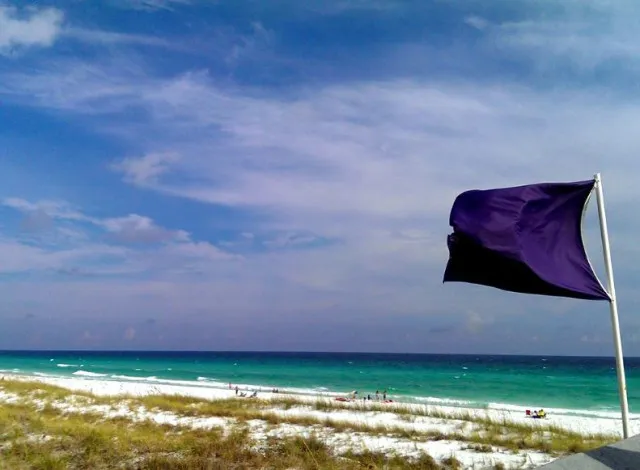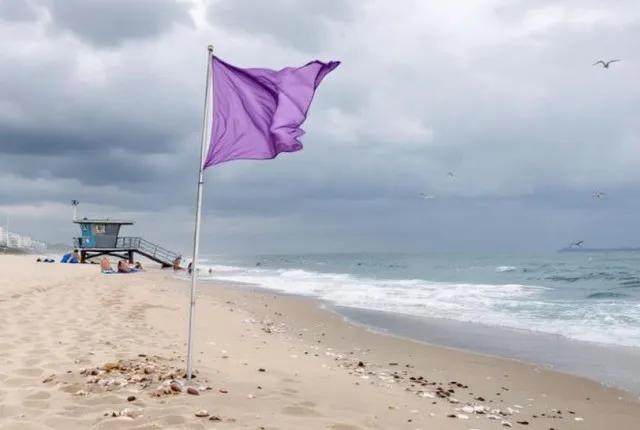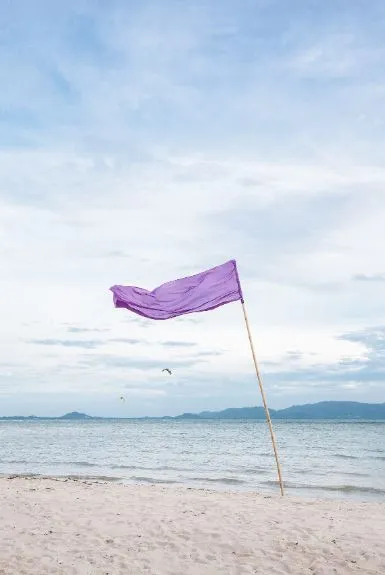If you happen to spot a purple flag while at the beach, here’s what it indicates and why it’s important to pay attention to it.
As beach season approaches, many people look forward to sunny days by the ocean.
While swimming in the ocean is a favorite activity, it’s essential to stay aware of water safety.
One way beaches communicate ocean conditions is through flag colors.

You may have observed that there is one additional flag color recommended by the United States Lifesaving Association for beach flag signs: the purple flag, which is not displayed frequently.
But have you ever noticed a purple flag and wondered what it means?
A purple flag indicates the presence of marine pests
If you spot a purple flag at the beach, it signals that marine pests are in the water. This could include jellyfish, stingrays, and other potentially dangerous sea creatures.
A purple flag doesn’t prevent beachgoers from swimming in the ocean, but it signals that those entering the water should be cautious and watch for potentially dangerous sea creatures.
What do other beach flag colors mean?

In addition to the purple flag, there are several other flag colors to be aware of, each indicating different ocean safety levels.
Green flag: Low hazard conditions
A green flag indicates calm water and low hazard conditions, making it safe for swimming.

Yellow flag: medium hazard level
The yellow flag suggests a medium hazard level, with light surf or currents that may require some caution.
Red flag: Hight hazard level
A red flag signals a high hazard level, with strong surf or dangerous currents. Swimming is not recommended under these conditions.

Double red flag: Water closed to the public
When two red flags are raised, the water is closed to the public due to extreme conditions. Swimming is prohibited.
Beach flag guidelines are used globally
These beach flag colors are recognized internationally, helping beachgoers assess the safety of the ocean.
The International Life Saving Federation established global guidelines in 2004, ensuring consistency across beaches worldwide.

By understanding these flag meanings, you can make better decisions about when and where to swim.
Now that you’re familiar with the different beach flag colors, you can be more prepared when visiting the ocean.
Always keep an eye on the flags and other safety guidelines to protect yourself and others while enjoying the beach.
If you’re planning a beach trip, learn more about the best beach destinations around the world for a safe and enjoyable experience.